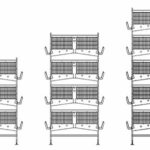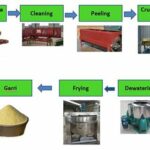 If you have been in a situation with an orphaned animal (puppy, kid, kitten, calf, foal), you will understand the cause for great concern that this brings for you as an animal care-giver. Much like an orphaned new-born human, an orphaned animal also needs special care and attention. First, it is important to understand the total concept of an orphaned animal and the circumstances surrounding an animal being orphaned. An animal may be orphaned for the following reasons;
If you have been in a situation with an orphaned animal (puppy, kid, kitten, calf, foal), you will understand the cause for great concern that this brings for you as an animal care-giver. Much like an orphaned new-born human, an orphaned animal also needs special care and attention. First, it is important to understand the total concept of an orphaned animal and the circumstances surrounding an animal being orphaned. An animal may be orphaned for the following reasons;
- The death of the mother
- Rejection by mother
- Infection or illness of mother (which may eventually lead to rejection of the newborn by mother)
- Failure of the mother to produce milk at the appropriate time
Newborn animals are very fragile and very reliant on their mother for warmth, protection and nutrition. In a reciprocate way, mothers are generally and instinctively protective of their newborn animals and they are usually anatomically and physiologically prepared for that phase of motherhood.
There are three critical issues that usually arise when an animal is orphaned and these must be addressed as a matter of urgency when the need arises. These include hypothermia, dehydration and hypoglycemia. They usually occur at the same time because they are closely linked together and must therefore be addressed critically. These include hypothermia, dehydration and hypoglycemia.
Hypothermia
Hypothermia simply means low body temperature. Newborn animals loose heat much more rapidly than adult dogs and they mostly rely on their mothers for the warmth and heat that is radiated from her body. For example, it is common to observe puppies huddling close to their mothers and the mother also attempting to gather them around her so that she can prevent them from getting cold. Even in birds, the mother hens would always sit on her eggs to keep them warm till they hatch and would still huddle them close to her when they are newly hatched. Warmth is so important that if newborns don’t get it on time, or if they lose too much heat, it might lead to death within a very short time.
With orphaned animals, since their mothers are not alive or able to give them quality mothering care, there are alternative methods that can be used to provide warmth. These include the use of incubators, heat lamps, heating pads or water bottles. However, a balance must be made between providing just the right amount of heat. Or else you might end up providing too little heat or allowing too much heat. A good way to observe and judge the effectiveness of your artificial heat is this; if your newborn animals move too far from the source of heat especially into corners, then the heat is too much. However, if they cuddle too close to the source of heat, then the heat is not enough. If you have a large litter of newborns, the temperature from the source of heat can be reduced. This is because the newborn animals would usually huddle together and their combined body heat will provide additional warmth.
Dehydration
 This simply means reduced water content in the body. Just like humans, an animal’s body is made up mostly of water. So when they don’t have enough fluids in their body, they can easily become dehydrated. Newborns are especially susceptible to this because they have less mass than adult animals. Causes of dehydration in newborn may include the following;
This simply means reduced water content in the body. Just like humans, an animal’s body is made up mostly of water. So when they don’t have enough fluids in their body, they can easily become dehydrated. Newborns are especially susceptible to this because they have less mass than adult animals. Causes of dehydration in newborn may include the following;
- When a newborn animal is not given regular fluid intake
- Overheating and hot environment
- Illness, vomiting and diarrhoea
Signs of dehydration in puppies include loss of elasticity in the skin, dry and sticky gums in the mouth, sunken eyes, depression and excessive panting.
To prevent dehydration, keep your newborn animals (and their mother) out of the sun or from hot conditions. Always make sure that your animals have easy access to plenty of water. Also, keep your animals in a healthy and conducive environment so they do not get infections.
Hypoglycemia
 This simply means low blood sugar in the body. Blood sugar or glucose is a main source of energy in the body so a low amount will result n a severe decrease in energy levels possible to the point of loss of consciousness. Hypoglycemia is usually the result of an underlying health problem such as diabetes. However, in newborns it might be due to an imbalanced diet (lack of glucose).
This simply means low blood sugar in the body. Blood sugar or glucose is a main source of energy in the body so a low amount will result n a severe decrease in energy levels possible to the point of loss of consciousness. Hypoglycemia is usually the result of an underlying health problem such as diabetes. However, in newborns it might be due to an imbalanced diet (lack of glucose).
Hypoglycemia can be observed in newborn animals as depression, increased hunger, weakness and low energy, muscle twitching, tremors and convulsions. If your animal shows signs of hypoglycemia, you can place a few drops of sugar solution or honey on the tongue of the newborn. However it is very important that you consult a veterinarian for a professional opinion and diagnosis, and most importantly, to rule out diabetes and other related disease factors that cause hypoglycemia.













